- Did You Know 24/7 Real Media Is An $800M Advertising Business In NYC?
- How Your Spouse Can Make Everything Work And Why
- Learn How David Moore Got 24/7 Real Media Through Really Rough Times
Full Interview Audio and Transcript
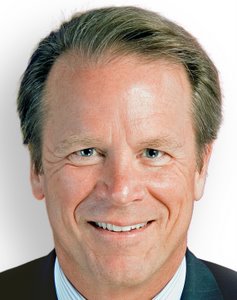
Personal Info
Sports Teams: A fair weather fan.. loves the Yankees, Mets, Cubs, Giants, Red Sox
Favourite Books:
- Googled: The End of the World As We Know It by Ken Auletta
- Lone Survivor: The Eyewitness Account of Operation Redwing and the Lost Heroes of SEAL Team 10 by Marcus Luttrell
- Darkest Fear by Harlan Coben
Favourite Entrepreneurs: Steve Jobs
Company Website: http://www.247realmedia.com
Interview Highlights
This is a condensed audio transcript. The full source audio is provided if needed. The interviewee may post corrections in the comments.
Adrian Bye: Today, we’re here talking with David Moore who is the CEO of 24/7 Real Media, who a couple of years ago were acquired by WPP. David has been part of the Internet scene for a very long time in New York, and I think has a pretty interesting story to tell. So David, thanks for joining us.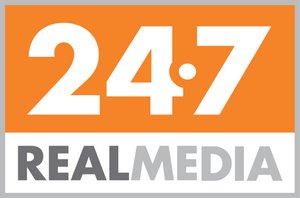
David Moore: Thank you for inviting me.
Adrian Bye: So, maybe can you just tell us a little bit about who you are and where you come from?
David Moore: Well, I am originally from Chicago, got into the television advertising business there, moved to New York City when I was 25 years old and had been in the advertising business ever since then.
I’ve always been interested in startup opportunities, and as a result I left the traditional television advertising business and moved to Turner Broadcasting in the late ’70s before CNN had even been launched, and sold for Ted Turner’s superstation WTBS here in New York.
Selling advertising on cable in the early ’80s was almost like selling vacuum cleaners door to door. Nobody wanted to buy and it was really, really hard to sell. However, as cable penetration continued to grow throughout the United States, I was recruited by Viacom to help them launch a new network, which in 1982 was called Cable Health Network. Cable Health Network became Lifetime Television and I spent about 12 years working at Lifetime Television in various sales management roles.
I left Lifetime and started a business which was an online service for doctors and actually ended up selling that to Reuters in 1993 and that gave me an introduction to the possibilities that existed for advertising on the Internet.
In the fall of 1997, I raised $10 million in venture capital and I started 24/7 Media, as it was called in those days, at the beginning of 1998. We went public in August of 1998. By the first quarter of 2000, we had 52 offices in 29 countries. We had 1,200 employees. We had a market cap of about almost $2 billion. Our stock price was $69 and we were cash flow break-even on $400 million run-rate for 2000.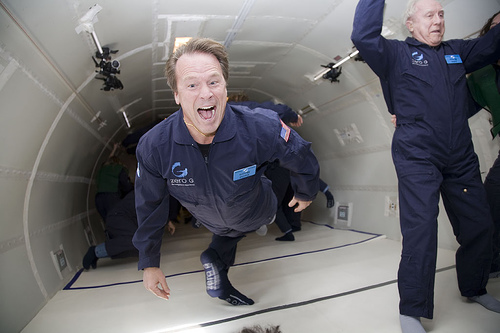
Of course, as everyone knows, marketplace peaked in March. NASDAQ reached an all-time high and from that point on business and stock price just started to spiral down along with the rest of the industry. By September of 2000 we were losing $15 million a month. We made our first series of staff cutbacks. We thought we’d cut very deep and let 400 people go in the fourth quarter of 2000.
We began the fight to stay alive, and for two years it was a real battle. However, we managed to survive and as the business and industry started growing again, we did as well. We were able to build the business back up again to the point where in July of 2007 we were acquired by WPP for $650 million. So it was a wild ride.
I am happy to report that as part of the WPP family of companies, if we were a public company we would be reporting somewhere in the neighborhood of $800 million worth of revenues this year.
Our business since has flourished and prospered primarily due to great execution by our employees here, but that combined with the ownership of WPP has just been a terrific move for the company overall. We find ourselves in a position to help drive a big part of the WPP digital strategy utilizing the technology that has been a mainstay of the company.
Adrian Bye: I am interested with sort of an understanding about how the company got founded?
David Moore: After I had sold this online service for doctors to Reuters, I was looking around for something else to do and the guy that had run Lifetime Television for a number of years had bought a company called Petry Television.
He hired me to expand into new businesses. When I got there with this recent experience with this online service for doctors, it seemed to me that the Internet was going to be a very big advertising medium.
Having been through cable and seeing how tough it was to sell in the early days and then how it became mainstream media, I thought that there was great promise for the web.
So, what I did was I started this representation of websites and sell advertising on their behalf and I did that within the company Petry Television. I went to the owner of Petry Television and I said, “You know we have got eight guys selling advertising for websites, DoubleClick just got $40 million in funding. This is going to be a serious business. We really need to invest.”
He said, “You know, I really don’t have the money to invest right now, but why don’t you go look for some partners and let’s see what we can do.” So I decided after looking around outside, the best thing that I could possibly do would be to buy the company.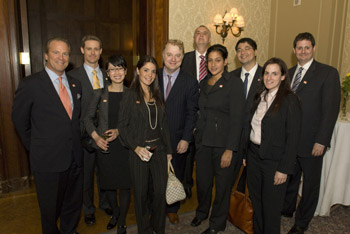
So I made a deal with Petry Television to buy this little interactive business and I closed the deal in September 30th of 1997. I had three months to go out and raise money, because after that I would not be able to fund it on my own anymore.
Adrian Bye: I’m really curious to understand the dynamics behind this because I have heard this story from other people who were involved at the time. What I don’t understand, I mean a lot of entrepreneurs are very individualistic and want to run their own show, they want to go their own way, but you guys basically rolled together a bunch of top New York advertising firms at the same time and then made it all work?
David Moore: Yeah, we rolled three companies together. Of course I am the only guy left, alright, so there were two other founders or co-founders if you will that came from Petry. There was one founder that came from Interactive Imaginations, and then there were two founders that came from Katz.
In my view, because I was the CEO, I was the guy that got the money, my view was to the extent that we can create more critical mass quicker that we would be better off. I think if I had to do it all over again, would have I cut him to give him the same amount of equity that I originally had?
Probably not, because I don’t feel like they earned as much of it as I did, because as I mentioned I’m the only one here and I was the guy that did the heavy lifting in the times of trouble. But overall, I think it was the right decision to put three companies together.
Adrian Bye: You know it was interesting in the beginning when you were telling us sort of your time line, as you went through it, your voice changed a lot as you were describing the time from sort of 2000 through 2003. It obviously affected you a lot.
David Moore: Well, it was a very very tough period of time. I mean there is a lot of stories about guys that had a lot of money on paper and then lost it all during the crunch and never got back. From my perspective, I certainly had a huge paper loss.
Fortunately, I had been selling some stock prior to the crash, so it wasn’t like I had gotten anything out, I had. But there were six significant events that allowed us to survive. I mean to give you one example, in the first quarter of 2000 we were having discussions with Idealab.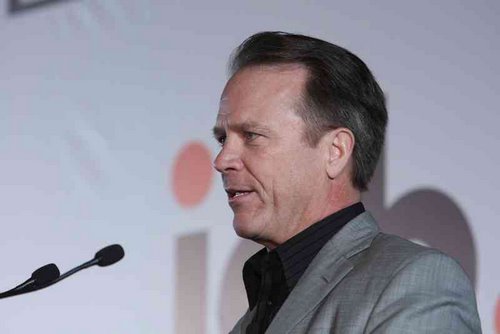
Idealab was getting categorized as an investment company and as a result they were looking to buy a company so that they could become an operating company. While the deal never materialized, they said, “We are taking some venture money in and expect to go public in the fourth quarter of 2000, and if you would like to invest personally, we would be willing to let you in.”
So I remember calling Ted Ammon, who was this high flying financier and said to Ted, “You know, we have an opportunity to invest in Idealab.” He said, “What are the terms?” I said, “Well I think it is somewhere in the neighborhood of $10 billion valuation.” He goes, “What’s the minimum they will take from 24/7?” I said, “$25 million.”
He goes, “Sounds like a good deal to me, let’s do it and how much can I get in for?” All our board invested in Idealab, but 24/7 put $25 million into Idealab and, of course, it never got public, and in 2001 I needed money and I was the first guy to settle with Idealab. I took 10 cents on the dollar. I got $2.5 million back, however that $2.5 million allowed me six more months of life and that was one of six significant events.
Another significant event was I had bought this company called Exactus in the summer of 2000 and I paid $0.5 billion for Exactus in 24/7 stock. I sold it about two weeks before I was about to run out of money completely for $13 million in cash and the stock at that time was probably worth about five million. That 500 million was five million, but I got 13 million in cash and that also allowed me to live for another 12 months or thereabouts.
We bought Real Media and we bought Real Media on just a stock basis at the end of 2001. Our stock was at I think 15 cents at that time and they had enough critical mass where we could have done a merger of equal.
However, the company that was funding Real Media was a company called PubliGroupe which is located in Lausanne, Switzerland, and they were not going to fund Real Media anymore. They were going to shut it down.
When I offered to buy them, they did not want to do a merger of equals because they didn’t want to wait for shareholder approval. Anything over 19.9 percent, you have to get shareholder approval for. So they said, “We will take 19.9 percent of the company, we will take your stock.” I was able to get them to loan me money if I hit certain EBITDA levels and ultimately I converted the loan into equity, but hadn’t I not been able to buy Real Media, again I would have been out of business.
Adrian Bye: Why did you do it? Why not just say, “Well things are bad right now. Let’s do a sale and we will wrap it up”?
David Moore: When I started the business, I was never thinking about an exit. I was always thinking about this being a long-term profitable business where all the employees could share in its success. We could operate it in a family-friendly way and it never occurred to me to really sell the business.
One of the things that I have to mention — and I talk to entrepreneurs all the time and a lot of times they ask me for advice — for a young guy who is not married or have any kids, being an entrepreneur I think is a lot easier because the risk is only yourself.
But when I started 24/7, I was 45 years old. I had two pre-teen kids and, you know, mortgages and expenses and everything else, and if my wife was not 100 percent behind me, it would have been extraordinarily difficult for me to have gone out and started 24/7. You know, the support of your wife is critical because if they are not behind it and they are worried about you perhaps failing, it makes it much tougher for an entrepreneur to succeed, and in particular if he doesn’t succeed, his marriage is off because she is telling him, “I told you. You shouldn’t have done this and so on and so forth.”
So I guess longwindedly, the support of your better half is I think a real key to being a successful entrepreneur.
Adrian Bye: We are going to have to wrap up, is there anything that you want to mention that we haven’t covered?
David Moore: I would just say that this industry is a fantastic industry and I have been very fortunate to be a part of it for the last – it would be almost 15 years now, and the change continues every day, it is so dynamic. I wouldn’t trade the experience I have had over the last 15 years in any other industry. It has been terrific.
Adrian Bye: David, thanks for sharing your story.
David Moore: My pleasure.









